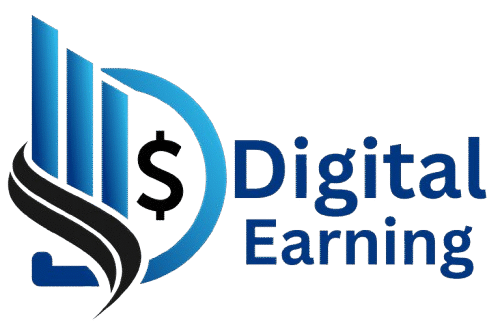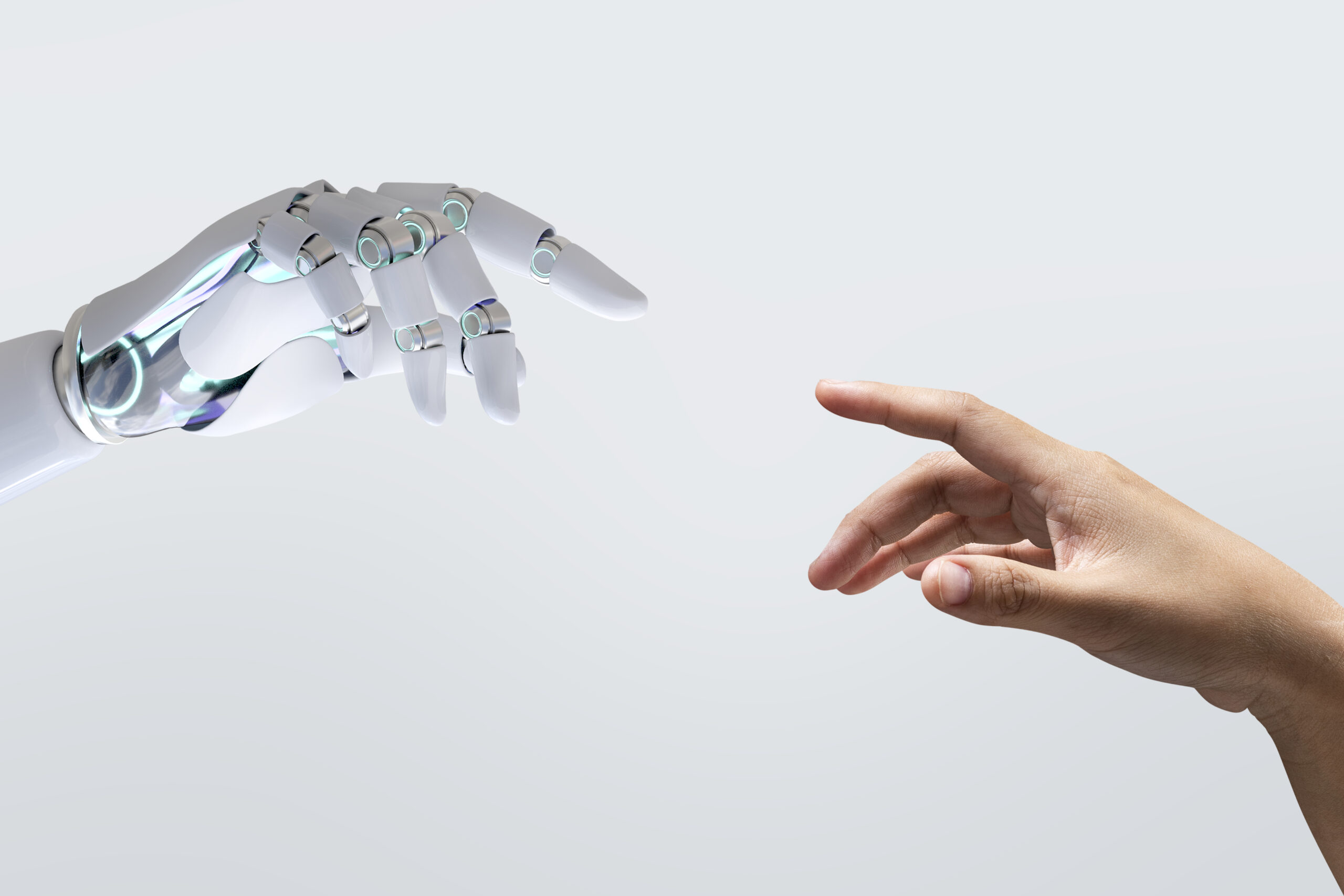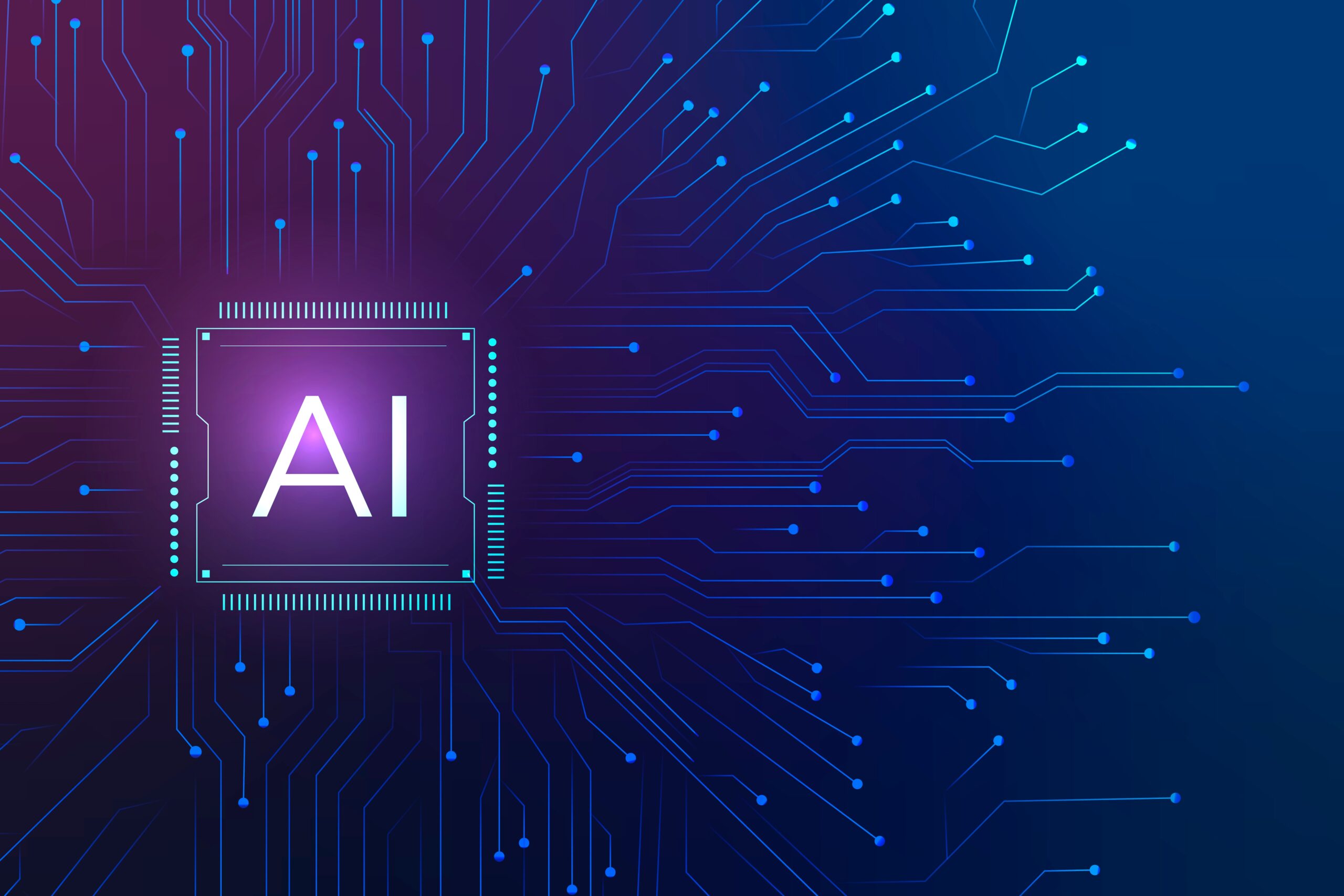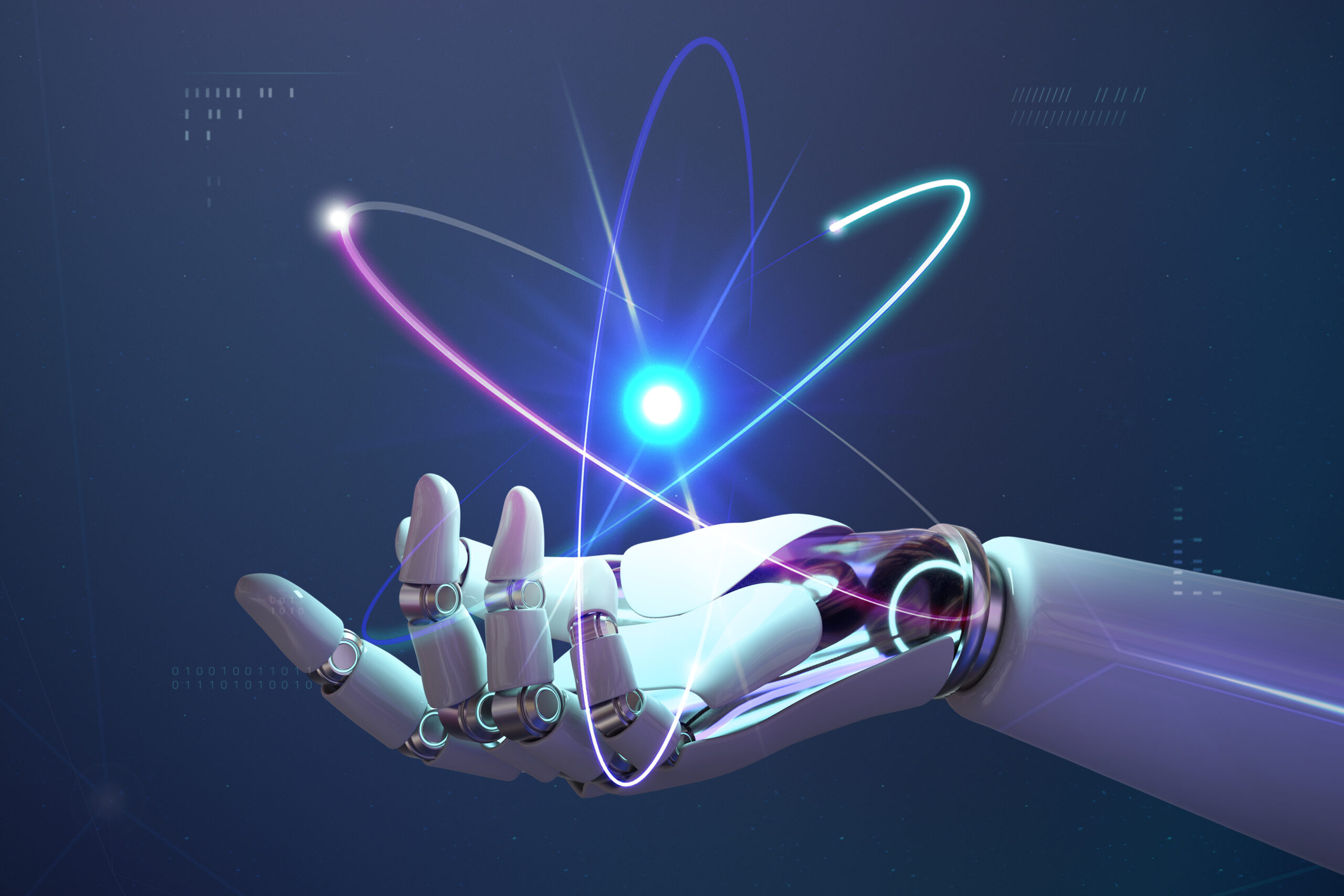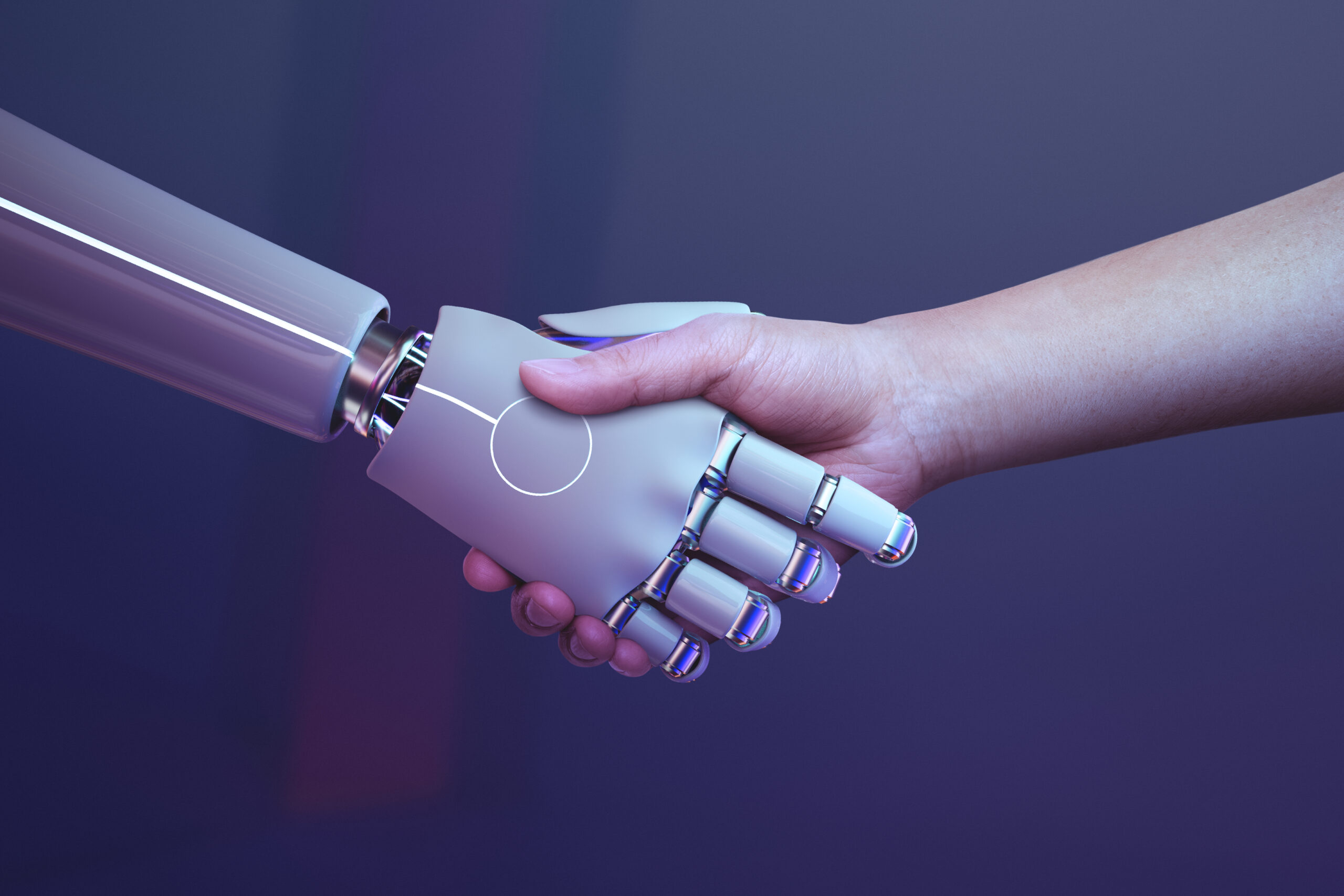In the digital era, one of the most fascinating debates is between Artificial Intelligence (AI) and Human Intelligence. While machines are becoming smarter and faster, human beings still possess something that no algorithm can truly replicate — emotions, consciousness, and creativity.
But what truly sets them apart? Let’s dive deep into how AI and human intelligence differ, where they shine, and why they are both essential in today’s world.
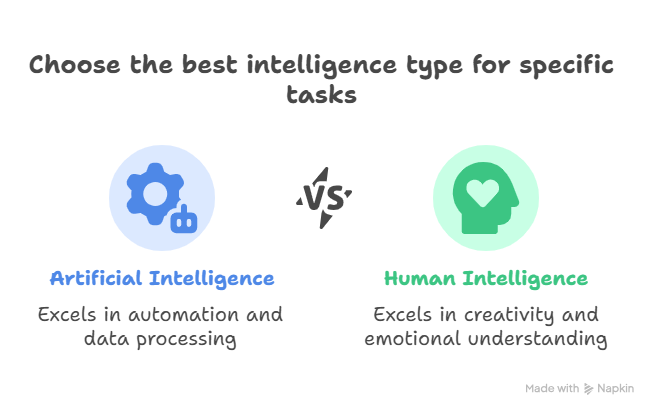
Understanding Artificial Intelligence (AI)
AI refers to the ability of machines to simulate tasks that typically require human intelligence. These tasks include recognizing speech, translating languages, playing games, solving problems, and even driving cars.
AI works through:
- Algorithms and data analysis
- Machine learning and deep learning
- Pre-defined patterns and logic
While AI doesn’t understand emotions or have a sense of self, it can still outperform humans in tasks that require high-speed processing, data handling, and automation.
What Makes Human Intelligence Unique?
Human intelligence is built over time through life experiences, emotions, senses, culture, and the ability to make decisions based on values, ethics, and empathy. Unlike AI, humans can feel joy, sadness, love, and pain — which influence how they think and act.
Humans can:
- Imagine things that don’t yet exist
- Learn from mistakes and feelings
- Understand social cues and emotions
- Take moral or emotional decisions, not just logical ones
Major Differences Between AI and Human Intelligence
| Feature | Artificial Intelligence | Human Intelligence |
| Learning Method | Learns from large data sets and algorithms | Learns through emotions, experience, and logic |
| Creativity | Can generate ideas based on patterns | Thinks beyond patterns; creates original ideas |
| Decision Making | Based on logic and data | Includes emotions, ethics, and intuition |
| Flexibility | Needs to be trained for each task | Adapts quickly to new situations |
| Emotional Capacity | Lacks emotional depth | Understands and feels a wide range of emotions |
| Memory & Speed | Can store and retrieve huge data instantly | Limited memory, but stronger contextual understanding |
Where AI Performs Better
AI has shown remarkable performance in areas like:
- Data analysis and automation
- Repetitive and rule-based tasks
- 24/7 availability without fatigue
- High-precision work in medicine, finance, and manufacturing
AI can scan thousands of documents in seconds or drive a car using real-time sensor data — things that take humans much longer.
Where Humans Still Lead
Humans excel in:
- Emotional intelligence and empathy
- Creative problem-solving
- Moral and social decision-making
- Building relationships and understanding culture
Humans can adapt to unfamiliar environments, learn languages, comfort others emotionally, and create meaningful art — all without being programmed to do so.
Limitations of AI
Even though AI is powerful, it has its downsides:
- Cannot think beyond its programming
- No understanding of right or wrong
- Risks of over-dependence and job disruption
- Lacks consciousness and self-awareness
Limitations of Human Intelligence
Humans too face challenges:
- Prone to emotional decisions or biases
- Limited processing speed and memory
- Fatigue can impact performance
- Influenced by past experiences, which may not always be accurate
AI and Humans: Competition or Collaboration?
Instead of seeing AI and human intelligence as competitors, it’s more accurate to view them as collaborators. AI can handle data-heavy tasks, while humans can provide judgment, ethics, and creativity.
For example:
- In healthcare, AI diagnoses, but doctors provide compassionate care.
- In education, AI personalizes learning, while teachers mentor students emotionally.
- In business, AI provides insights, while leaders make people-driven decisions.
Conclusion
Artificial Intelligence is undoubtedly revolutionizing industries, but it cannot replace the emotional intelligence, ethical thinking, and creative potential that humans bring to the table. The future lies not in choosing between AI and humans but in using both together wisely.Stay tuned on DigitalEarning.in to explore more about the evolving relationship between technology and human potential.
